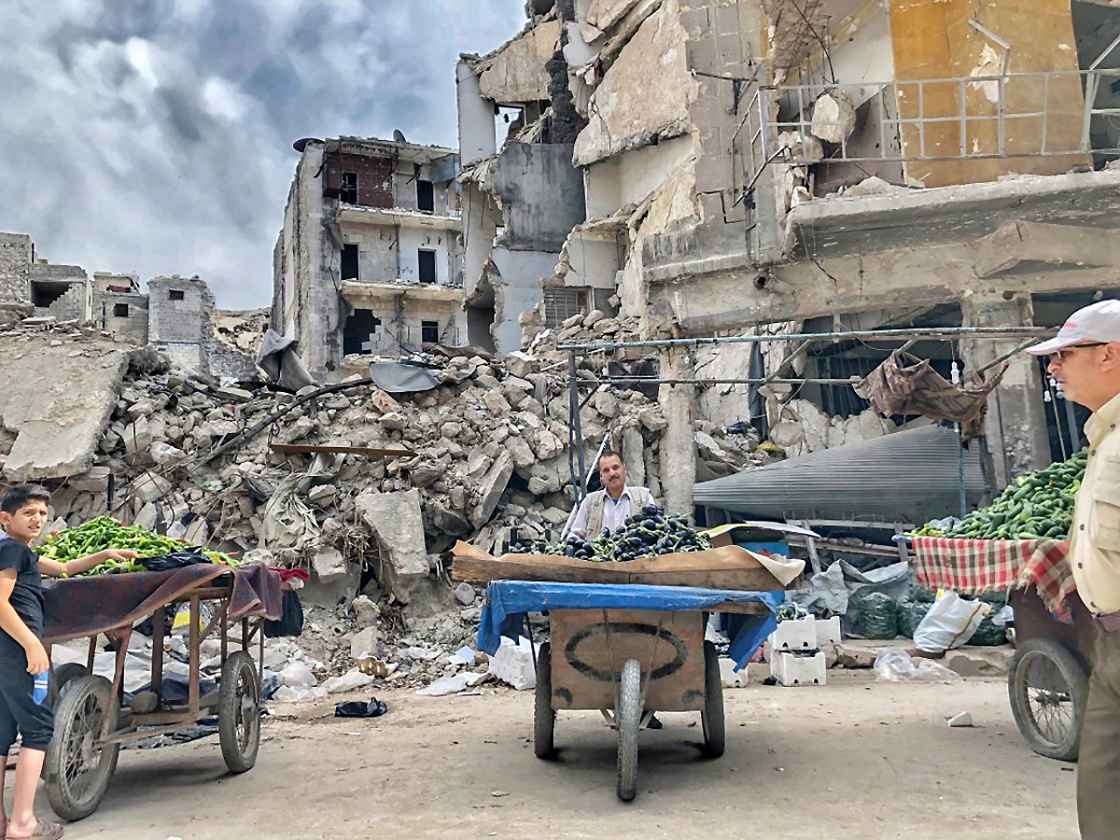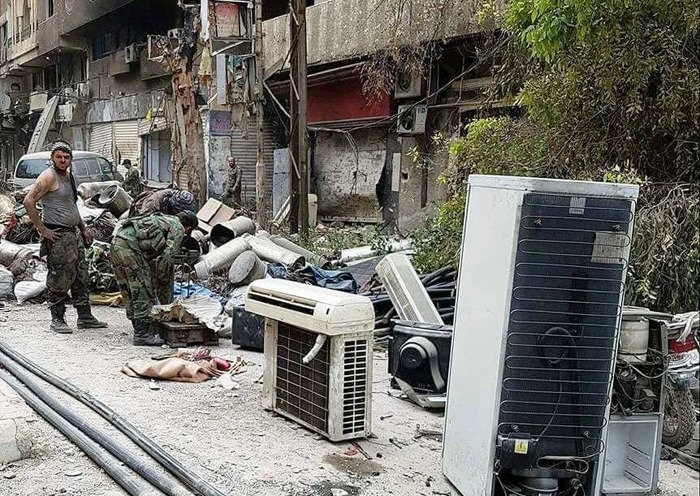
“Picking up the pieces. How Syrian society has changed” is the title of the Synaps agency report entitled “Recovering Daily Life. How much Syrian society has changed.” Synaps was founded by African-American British Peter Harling, who worked for twenty years as a journalist in the Middle East – Iraq, Lebanon, Syria, Egypt and Saudi Arabia. Journalists working with him have now collectively gathered the image of what they have seen and heard from the mouths of their inhabitants in Syria: the post-war landscape.
“The war – Synaps-begins – has transformed Syrian society and will take time to take action on the changes. These changes are not observed by the increasing number of foreigners who get permission to enter Syria, who often claim to have found the most ‘normal’ things than they expected: Damascus cafeterias, full of necks, reopen the shops of Aleppo... Officials of different nationalities have also begun to draw plans for the future that are too optimistic.” The disaster, however, has left deeper cracks.
One of the major changes in Syrian society has been the male massacre, which has been broken. Men of a whole generation are slaughtered by war, wounded or exiled by those who have not killed or killed. Most detainees are condemned to live under a violent and corrupt system created by armed militias. For example, this Alawi family of a people on the coast controlled by the government.
The mother told the journalists: “We’re tired of war. Of my three children, one is martyr, the second is half dead [because of the wounds of the paraplegic, of the war] and lives with fear of being recruited by the youngest. God will end this conflict: cemeteries are filled with young men.”
One third of the young people of this country of 3,000 inhabitants have died or been injured by the long war, and the other two thirds have left in the Bashar Al-Assad army or in some militia in their favour, in addition to ensuring life, to be able to earn a living.
Something similar happens in areas where anti-government militias have had the strength. For example, Aleppo in the east. After the siege and bombing of the army, families must survive without the most basic services, destroying the economy and suffering the savage order established by the militias: “If you want to protect your family, you have to enter a militia.”
There are many disorders caused by militias attached to the army. Each group controls a neighborhood and they often throw each other, fighting for the spoils. The owners of the shops must pay them in return for their protection.
Testimony of another citizen: “The young people who have stayed in Eki-Aleppo have entered militias to solve our most serious problems. Gudaris receive a decent wage, but also other bonuses, such as access to electricity generators, because traders know that it is in the interests of militiamen to pay a special price.”
If you don’t want to enter the militia and don’t get a shot, you have to buy the favor – and it’s expensive – to the region’s commander: in addition to the hard initial payment, you’ll be given the same military salary that suits you and often a monthly supplement. In reward, he hides you on the soldiers' payroll. They drowned the generation that mobilized in 2011 against Bashar al-Assad.
General looting, cannibal economy
Syria’s productive economy is destroyed and instead what Synbas calls a systematic cannibal economy has been established. Within this, the poorest elements of society survive by attacking each other. Taafeesh can be the symbol of the new word: anything stolen is taafeesh, strands stolen from power grids like a TV transported from a house.

In the famous Palestinian Yarmouk camp in Damascus you know what taafeesh is. Its inhabitants have seen the government's military throw underground electric cables from the tanks. Every militia does taafeesh in the fields of others. The treasures of looting can then be seen at street stands and fairs. Those who have missed something at home, with a little ingenuity, have the opportunity to buy for the second time the troubles they have had.
“The economy of war-predators is slowly but steadily becoming a peace-keeping prey economy,” Synnus’ journalists said. People fleeing abroad face a difficult and costly repatriation route. Any information to be provided by the Administration is often accurate by officials. Nothing to say if you have to pay what you need to go home. And when they go home, militias, like the army, are claiming their tributes at numerous check-points.

As this predatory economy expands, all sectors of the economy and society rot. The industry or service in this situation is difficult to rebuild. Many officials and lawyers, including those working in solid offices, have started to work as intermediaries, leaving their usual jobs, as citizens need them to take the smallest role out of the bureaucracy, always paying. When armies extort and blackmail citizens, these intermediaries also take their share.
Drowned by war and misery, the survival effort is almost the only day of life for the citizens. A researcher from the city of Homs has stated that “in 2011 everyone was discussing politics here. Today no, it doesn’t matter to them: they want to live.”
But, seeing the destruction of Syria, the naivety with which Syrian passersby try to move forward, bringing courage, patience and solidarity, becomes even more surprising. Many families live abroad with money sent to them by a family member, but also thanks to the mutual and informal support networks that have been strengthened in Syria. as well
One citizen says: “Here people have always made charity in an Islamic way. I mean, you have to help those around you. If there's someone who needs your help and you can't help her, like a neighbor, then it's up to you to find someone who can help her. Those networks are strong and everyone lives today because of it.”
Seven and a half years of war, half a million deaths, five million fugitives, the economy destroyed... As if they had jumped from a modern state to the Middle Ages, Syrian citizens would have to protect each other under the attacks of feudal lords.
.jpg)
Giza Eskubideen Siriako Behatokiak salatu du gobernuko indarrek gutxienez 800 zibil hil dituztela Latakia probintzian, "odol hotzean". Ahmed al Sharaa Siriako behin-behineko presidenteak iragarri du "batzorde independente" bat eratuko dutela gertatutakoa... [+]
The end of the Syrian Arab Republic has caused great surprise at the way in which it has taken place: fast and almost without resistance. However, it is not so strange when we consider that the country was destroyed, impoverished and trodden. Most Syrians have long been... [+]